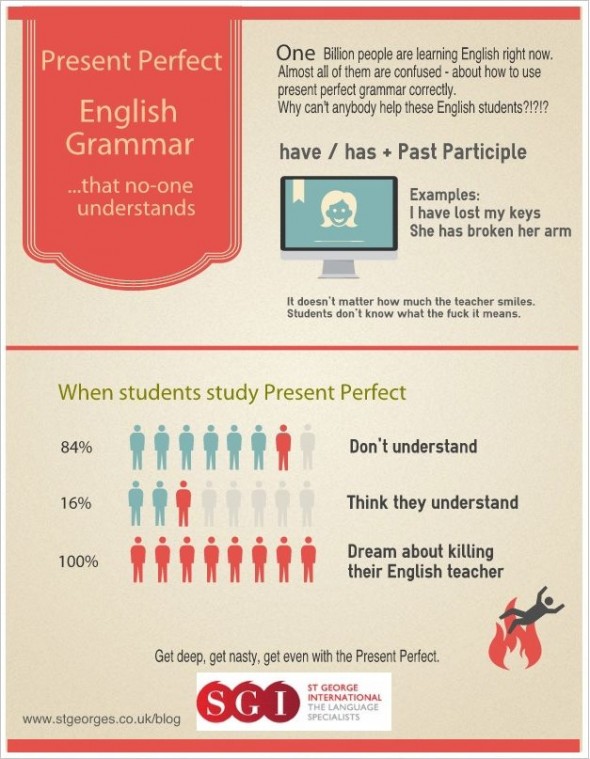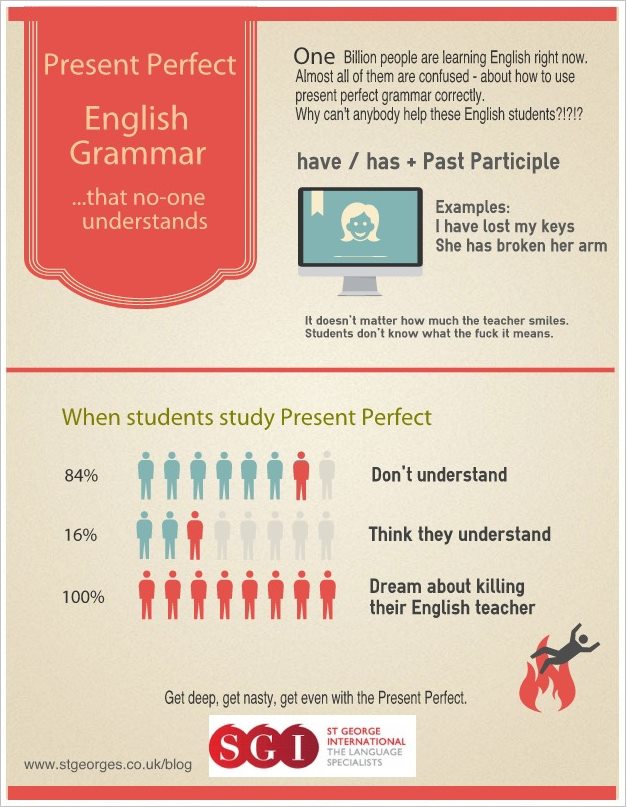
Those of you who have been following us for a while might know that I used to work as an English teacher. Some of you might even have been in the same profession in the past. While I do love writing day in and day out, I do miss teaching at times – especially when I see humorous images like the one above.
Ah, the present perfect tense. It sure did bring many an ESL learner to his knees. (Either that or the learner simply killed me in his mind.)
While the infographic offers comic relief to English teachers and learners alike, the present perfect tense does play a huge – and serious – role in writing. The use of the present perfect tense may not be critical in some cases, but in academic/scientific/technical writing, this verb tense is used a lot. This is due to the fact that the present perfect tense is often used when referring to research or trends. See the examples below.
Recent studies have shown that coffee may help achieve weight loss.
In the past year, tablets have become the writer’s best friend.
So let’s do a quick review of the present perfect tense, shall we?
Forming the Present Perfect Tense
The present perfect tense is formed by using “to have” and the past participle of the main verb. As you can see in the examples above, “have” always precedes the main verb in its past participle form.
Using the Present Perfect Tense
This is where it gets murky for learners of the language. Let’s make it simple and look at the three main uses of this tense.
One, to refer to something that happened in the past but still applies to the present.
Example: She has lived in Portland since she was teenager. (She lived in Portland when she was a teenager. She still lives in Portland today.)
Two, to refer to an experience in the past. This also applies to activities that have not been experienced.
Example: I have never gone sky diving, but I have gone bungee jumping.
Three, to refer to something which has just happened.
Example: She is running late, but she has just arrived from the airport.
I have found that simplifying the uses of this verb tenses works most of the time. Or maybe, I just didn’t know it, but my students either thought they understood or they dreamt of killing me.
When it comes to writing, though, I do not think I prefer using certain verb tenses over others. I simply use what is most appropriate and pay attention to consistency. How about you?


Leave a Reply